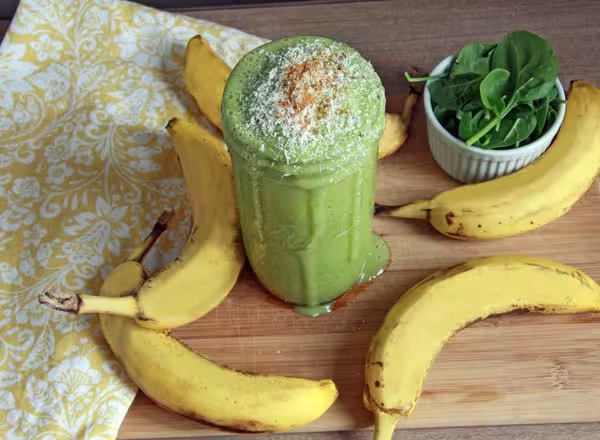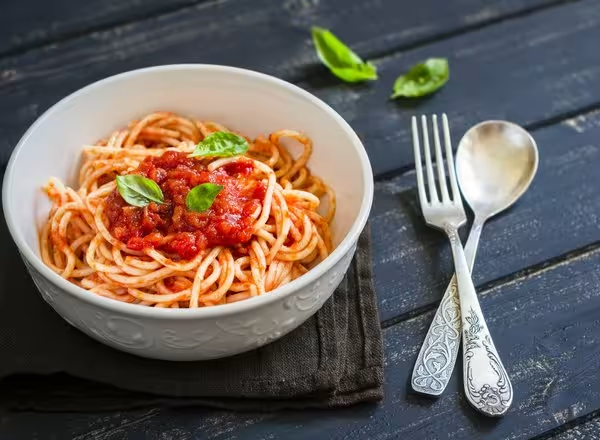




How you can incorporate a more compassionate diet into your life.

Plant-based diets are all the rage these days. Plant-focused restaurants are popping up in cities around the world, celebrities praise the virtues of plant foods, and thousands flock to plant-based festivals each year. It’s time to believe the hype: plant-based diets can be delicious, nutritious, and beneficial for both animals and the environment.
What is a Plant-Based Diet?
While the definition of a plant-based diet remains somewhat fluid, it generally means a diet consisting nearly exclusively of plants. This is similar to a vegan diet, which excludes all animal products out of a desire to do no harm.
Whether vegan or plant-based, many people choose to follow these diets out of concern for animal welfare and the problems associated with factory farming, environmental issues such as climate change, personal health, religion, and more. While plant-based diets have been around for millennia, this way of eating is only now catching on in the United States and other wealthy nations where animal products have traditionally taken center-stage at every meal.
What Foods Can You Eat on a Plant-Based Diet?
Before you groan about salads, know that a plant-based diet incorporates a rainbow variety of delicious options. In order to realize the optimal health benefits of a plant-based diet, it’s recommended to stick to whole foods and foods that are minimally processed. This means either plants themselves (leafy greens like spinach, kale, collards), products that plants produce (fruits, seeds, nuts, and legumes) or that are derived from plants (olive oil, tofu).
There are many refined foods that are also plant-based, such as white rice, white bread, and french fries. And as demand for plant-based options grows, more products are becoming available, such as plant-based pizzas and cashew-based ice cream. However, these foods can be high in sugars and saturated fats, so moderation is advised.
Health Benefits of a Plant-Based Diet
As with all diets, there are right ways and wrong ways of eating. When done correctly, the plant-based diet can deliver remarkable health benefits. A whole-foods, plant-based diet delivers the highest levels of vitamins, minerals and fiber, and the following health benefits.
Better Weight Management Plant-based diets can be just as effective as other diets in maintaining a healthy body weight. Studies have shown that, in general, meat-eaters have a higher body mass index (BMI) than those who put the focus on plants.
When it comes to managing weight, fiber is your friend. Plant-based diets—particularly those with a whole-food focus—tend to be high in fiber, which is found in foods like fruits, veggies, and whole grains. Fiber is unparalleled in its ability to flip your “full” switch—it signals to you when you are sated. Fiber-rich foods also take longer to digest, meaning you feel fuller longer. Ever wonder why you can’t eat just one potato chip? Their lack of dietary fiber is one of the culprits. As an added bonus, one study found that high consumption of dietary fiber reduced the risk of developing chronic diseases including diabetes and some types of cancer.
Lower Risk of Heart Disease According to the Centers for Disease Control and Prevention, heart disease is the leading cause of death in the United States, with one in four people succumbing to conditions such as coronary artery disease, leading to heart attacks, and strokes. Poor nutrition can be a major factor in developing these conditions.
Cholesterol is notorious for its role in causing heart disease and stroke. Saturated fat, which is found primarily in animal products, is a big factor in raising blood cholesterol levels. Our good friend fiber, on the other hand, lowers these levels.
A plant-based diet composed primarily of whole foods can result in lowered blood cholesterol levels due to these foods being high in fiber, and low in both saturated fats and cholesterol itself. Recent studies show a 32% lower risk of dying from a cardiovascular condition in those who consume a high intake of plant-based foods. Another study found that even diets that included small amounts of lean meats offered far less reduction in total cholesterol—boosting the argument for a purely-plant diet.
Lower Risk of Inflammation Plant-based diets can be synonymous with anti-inflammatory diets. Chronic Inflammation is connected to a host of dangerous medical conditions including heart attacks, diabetes, and autoimmune conditions such as rheumatoid arthritis. Pro-inflammatory diets are those high in fat, and which include animal products like red meat and processed meats.
A whole-food plant-based diet can be your ticket to reducing inflammation. Plant foods are naturally anti-inflammatory thanks to their high fiber content, as well as being rich in antioxidants and phytonutrients which reduce inflammation.
Diabetes Prevention and Treatment While it’s common to associate diabetes with sugary drinks and candy bars, red meat and animal products play a big role as well. Iron from animal flesh, as well as nitrates often found in preservatives used on these products, are known to impair the function of insulin by damaging pancreatic cells and causing other havoc in our bodies.
Plant-based diets that emphasize whole foods, while eliminating refined foods and animal products, encourage insulin sensitivity through maintaining a healthy body weight. One study showed a 30% decrease of type 2 diabetes for those following a whole-foods plant-based diet, while another study showed that already-diagnosed diabetic patients can even reverse the disease.
Nutrients to be Aware of on a Plant-Based Diet
Nutrient deficiencies can occur regardless of what diet you’re on. With plant-based diets, as with any other diet change, it’s wise to take time to understand all the nuances of what your body needs and how to best source these requirements.
-
Protein: “Where do you get your protein?” Get ready for this question, because it’s often one of the first to be asked when plant-based diets come up. In fact, there are many excellent and bioavailable sources of protein to choose from. Soy products are among the richest sources—things like tofu, tempeh, and edamame. Other options include legumes such as lentils, seeds, and nuts like almonds, chia, and peanuts; even vegetables like broccoli and kale deliver a protein punch.
-
Vitamin B12: This vitamin can be a bit tricky. A B12 deficiency can lead to anemia or damage to the nervous system, with telltale symptoms such as loss of energy, tingling in extremities, blurred vision, or poor memory. While B12 is found in animal products, it also occurs naturally in nori and chlorella, which are types of algae, as well as in shitake mushrooms. Many experts also suggest taking supplements, as well as the ever-expanding list of foods fortified with B12 such as nutritional yeast, certain plant-based milks, meat substitutes, or breakfast cereals.
-
Iron: Iron can be found in tofu, cashews, lentils, chickpeas, pumpkin seeds, dried apricots, raisins and kale, and much more. Vitamin C increases iron absorption, so try combining tofu with broccoli in a stir fry, or brussels sprouts in a lentil soup.
-
Calcium: Milk isn’t the only way to get strong bones (and this actually might be a myth deployed by the dairy industry to increase market share). Calcium can be found in even greater amounts than cow milk in plant sources such as broccoli, kale, and black beans.
-
Omega-3 Fatty Acids (DHA): These important fatty acids exist in abundance in seaweed, chia, hemp and flax seeds, walnuts, kidney beans, and soybean oil. Eat up!
-
Vitamin D: Vitamin D does all sorts of great things for your body, including supporting brain development, heart function, and keeping your bones and teeth in tip-top shape. Load up on mushrooms, tofu, orange juice, and wander outside for some summer sunbathing where it gets absorbed through your skin.
Plant-Based Diet Meal Plan and Recipes
Now onto the fun stuff: let’s get cooking! Here is a simple meal plan to get you started with a plant-based diet.
-
Breakfast: Chia-seed pudding with coconut milk, topped with raspberries and granola, drizzled with 100% pure maple syrup. Real maple syrup is rich in minerals and low on the glycemic index, meaning it won’t spike your blood sugar. Avoid table syrups with “maple flavor”.
-
Lunch: Brown rice or quinoa bowl with black beans, salsa, avocado and topped with cilantro. Eating brown rice and beans together makes a complete protein, whereas quinoa is a complete protein all on its own. Both contain essential amino acids.
-
Dinner: Tempeh ginger stir-fry with bok choy and broccoli. Tempeh is a fermented soy product similar to tofu, but packed with nutrients and prebiotics, which may reduce inflammation and improve digestive health.
Hungry for more? We’ve got you covered! Check out our recipe page for delectable ideas. Creamy mac and cheese, anyone?
Is Plant-Based the Best Diet?
There’s no such thing as a perfect, one-size-fits-all diet. All bodies are unique, with different needs arising based on your physiology, medical history, and genetic makeup. Socioeconomic factors and geographic locations are also a big influence on dietary choices.
If it’s possible for you, following a plant-based diet can be a great way to improve your health, make sustainable choices for the planet, and reduce demand for animal products that are virtually entirely sourced from factory farms. Switching to a plant-based diet can also make all the difference for the animals who suffer every day on these cruel farms.
Changing up your daily diet is never an easy task, so start out slow. Abrupt changes are more likely to upset your routine and make you more likely to revert to old eating habits. Gradually incorporating more fruits, veg, and whole grains into your diet while phasing out beef, chicken, fish, and all other animal products is the best path to success. Plant-based meat substitutes can be helpful too, since they can satisfy a carnivorous craving when they arise.
Remember to be easy on yourself. Change doesn’t happen in a day. If you live in an area with limited access to grocery stores or restaurants catering to plant-based diets, or if you’re dealing with medical conditions, it can be a daunting challenge. There is no one way forward. But every step you take will likely provide benefits.
Being able to eat food every day is a privilege, and our choices impact one another in myriad ways. Plant-based diets can make a difference in the world and in your personal health. More and more, plants are turning out to be the real superheroes among us.







